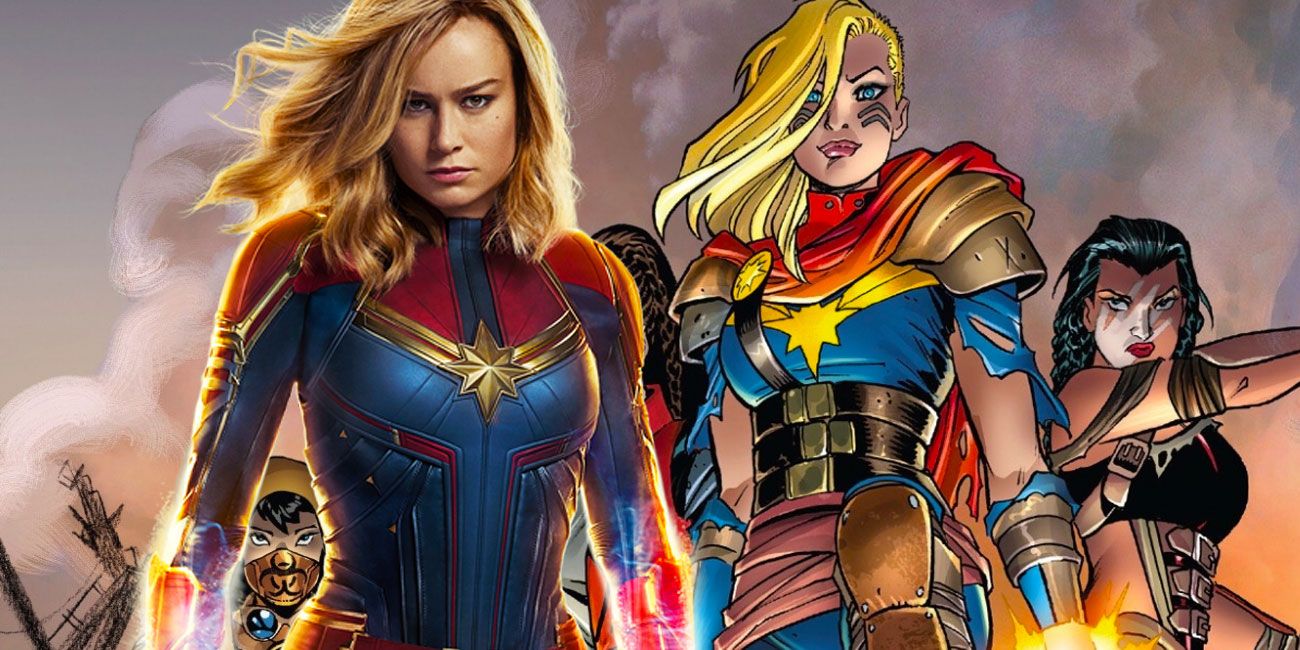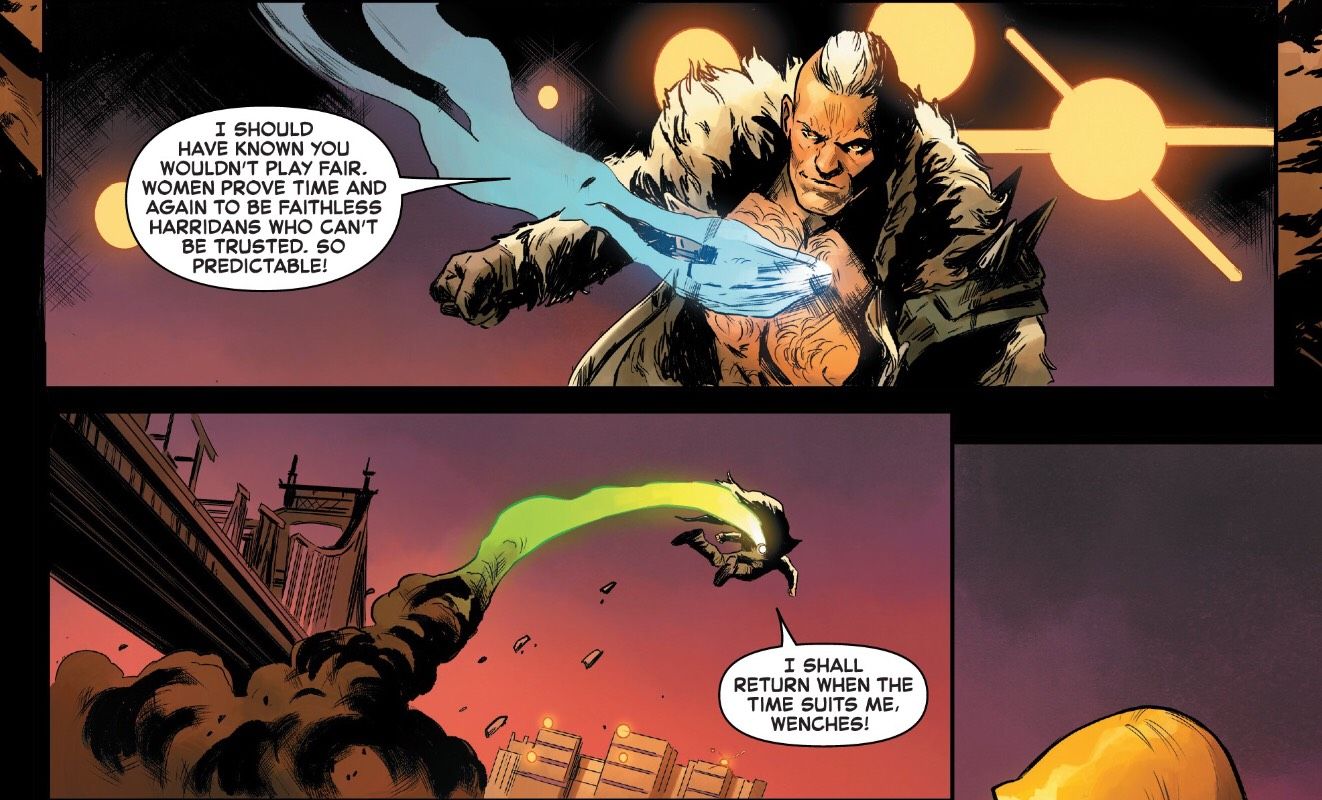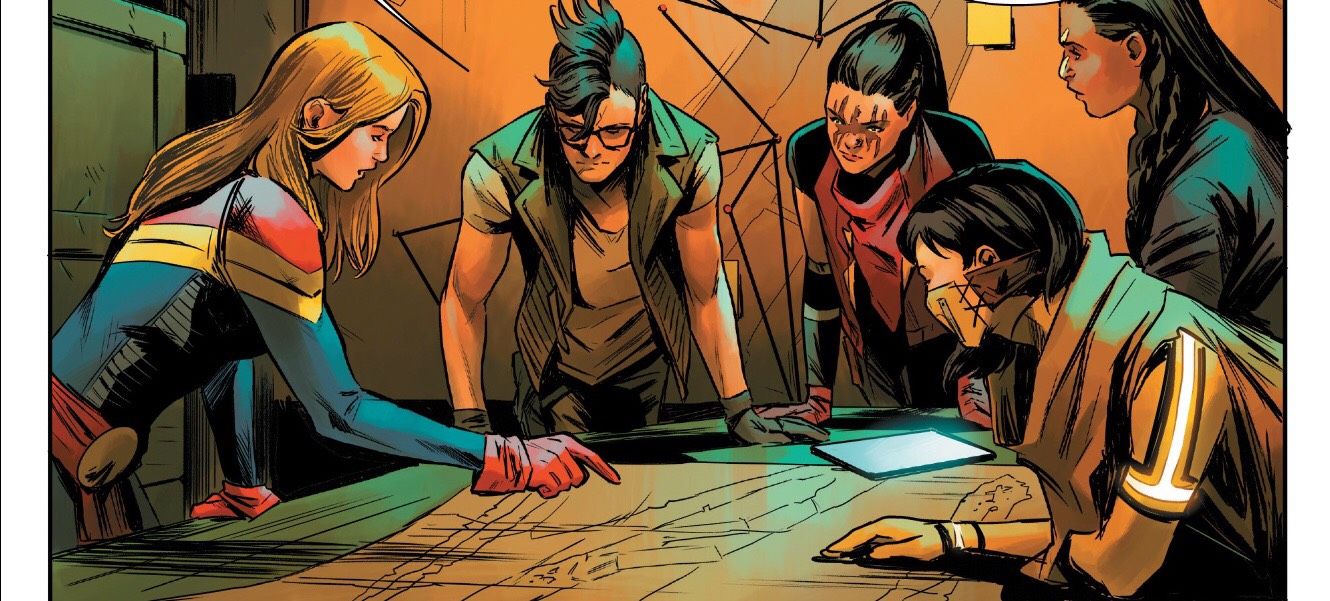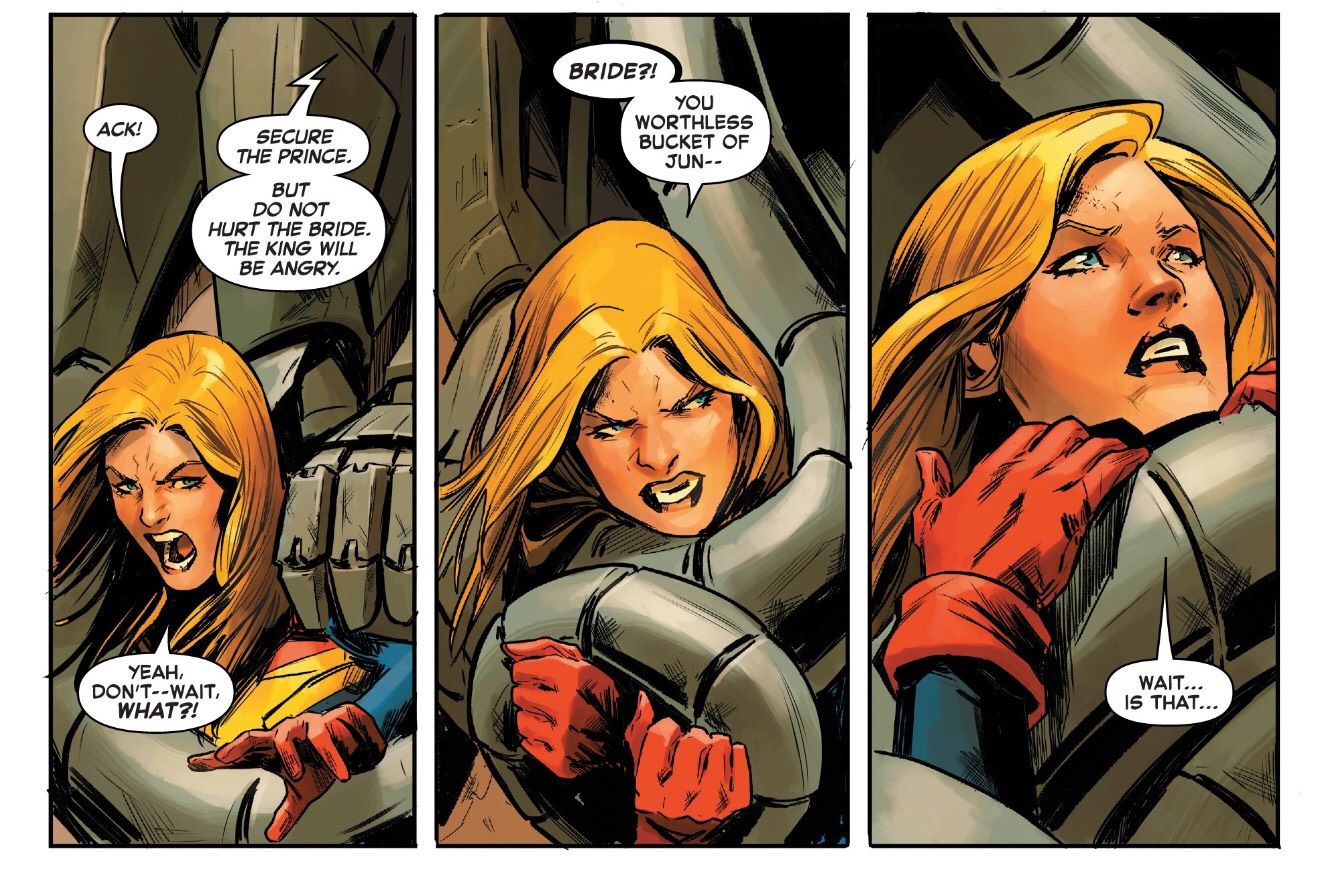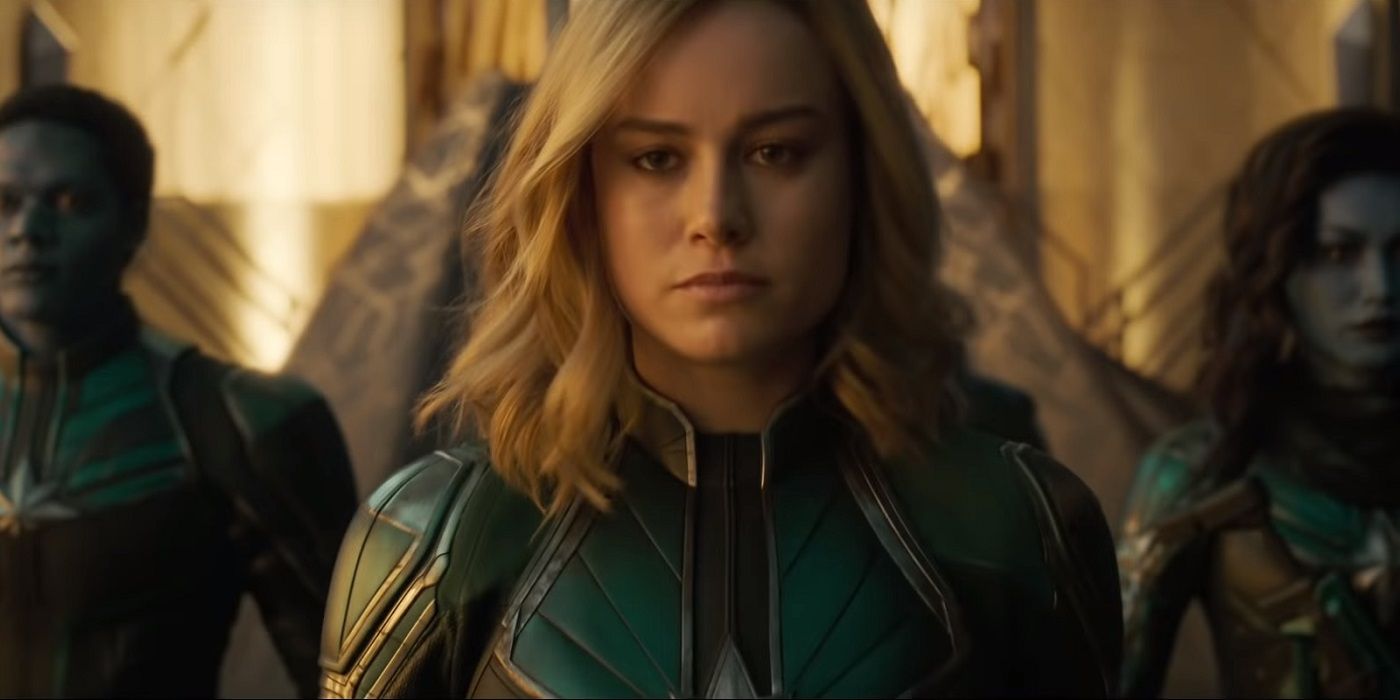In a well-timed release, Captain Marvel #2 highlights women banding together to survive a man’s world — literally. This new Captain Marvel series, written by Kelly Thompson with art by Carmen Carnero, continues Carol Danvers’ story where The Life of Captain Marvel series left off. The Avenger's not back in the superhero business long before there is a major attack by a supervillain. In this case, it’s a 7-foot-tall misogynist named Nuclear Man.
The villain has erected a barrier around Roosevelt Island that only women may pass through, but the real twist is a time difference between the inside and outside worlds. Though Carol had just seen them earlier that day by her perspective, relearn Spider-Woman and Hazmat have been stuck inside the barrier for 25 days. Nuclear Man’s barrier affects not only the passage of time, but the heroes' powers as well, and with the barrier now closed, the women are isolated and have to form an army to ensure their safety in a hostile place.
It seems like Captain Marvel is always destined to battle misogyny, whether in the comics, or in the publicity for the hero's Marvel Cinematic Universe debut.
RELATED: Captain Marvel #1 Plays it Safe, But Manages to Have Some Fun
Call Me by My Name
Nuclear Man uses a few choice words to describe the hero, such as “wench,” “witch” and “woman.” Not once does he refer to her by her name, Carol, or her title, Captain. Wench and witch are obviously negatively coded words to refer to a woman, the former calling to mind a female servant, while "witch" is a reference to how people feared powerful women to the point where they burned them.
Referring to a woman by just her sex is also insulting, especially when you imagine the tone of, “You will say my name, and will say it with respect, woman!” This is not a new experience for Carol Danvers as a character. In fact, this goes back decades to the Ms. Marvel comics of the '70s, where many male characters would taunt Carol by calling her “woman.” The hypocrisy of Nuclear Man demanding Captain Marvel show respect by calling him by his name is maddening and obviously purposeful on Thompson’s part.
The Rebellion
Surprising to no one, the characters who immediately refer to Carol both by her name and her rank are women (and Som, the only man to survive Nuclear Man’s barrier). They recognize her experience and powers and immediately put Carol in charge of the rebellion. When they get attacked, Jessica brings it all home with the statement, “You’re also the only captain we’ve got so … lead us.”
Contrary to stereotypes, the women are not catty, and they collaborate to brainstorm escape ideas. Along with Som, the ladies discuss ideas in an egalitarian way. Their body language, drawn by Carnero, has them all leaning in to the conversation -- all of their input is valuable.
The Bride
Nuclear Man seems pretty set on getting Captain Marvel to submit to him. As they fight at the beginning of issue #2, he orders, “On your hands and knees where you belong, my lovely! An appropriate show of respect … finally!” It’s vomit-inducing, and we can’t help but cheer a little bit when Spider-Woman blasts him.
We don’t know what Nuclear Man’s ultimate plan is, or why he's holding all of these women hostage. However, at the end of the issue, the robots call Carol “the bride” and restrain her, presumably to bring her back to Nuclear Man. Though he has demonstrated repeatedly that he doesn’t respect her, he's willing to … marry her?
Again, it's that misogynist mindset, the idea that women are only valuable if they’re married, a concept some still operate under, the belief that a woman’s role in society is only fulfilled if she gets married and has babies (and always in that order). We know Carol will get herself and the other women out of this situation, not only because it's her comic, but because, since the character’s inception, she has always fought against sexism.
Our Captain Marvel
It’s important to discuss the context and existing conversations that are happening around the Captain Marvel character right now. With the MCU film arriving next month, the Marvel Studios publicity machine is going full force. But even though it hasn't been seen, there's already been a lot of criticism of the film and Brie Larson, who portrays Captain Marvel, that’s rooted in misogyny.
When Marvel first began releasing promotional images, there was criticism that Captain Marvel wasn’t smiling, a ridiculous charge, considering the other MCU superheroes weren’t grinning from ear to ear in their first posters. Even though their smiles are lovely, we don’t put pressure on the Chrises to be smiling in all of their promotional material. So, we have to consider why only Brie Larson got this pressure.
Telling a woman to smile is, at its core, a misogynistic action. Essentially, you’re asking her to make herself more approachable or attractive for you to enjoy. It’s also misogynistic because men are not pressured to smile as they go about their daily lives.
RELATED: Captain Marvel Is Already Being ‘Review Bombed’ on Rotten Tomatoes
Unfortunately, this is not the only time the Captain Marvel film has been subjected to misogyny. The movie is currently being subjected to a "review bomb" campaign, which means users are giving it terrible reviews on Rotten Tomatoes in an attempt to tank its freshness rating, this despite the movie not having been screened for audiences. And Larson's call for more diverse press access has been met with angry fanboy hubbub about how she's trying to take away opportunities from traditional film critics, who are traditionally white and male. This is falls logic at its worst, considering the space for traditional critics already exists, and Larson is only asking for others to get the same opportunities.
The point of the MCU bringing in Captain Marvel as a headliner is to break out of the mindset DC's Wonder Woman has already struck a blow against: The idea that only male superhero films can be successful. This scares a portion of the old guard of fans, and potentially critics, despite the fact that there's no need to be afraid of women taking over. Opening things up for more diverse voices will only lead to more creative opportunities for everyone, resulting in exciting new content and criticism. It's fitting, then, that both in the comics, on the big screen, and in the media, Captain Marvel (and the woman who plays her) is continuing to lead the way.

